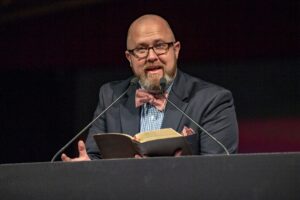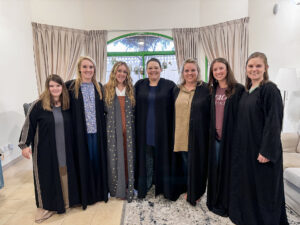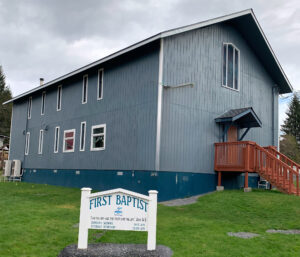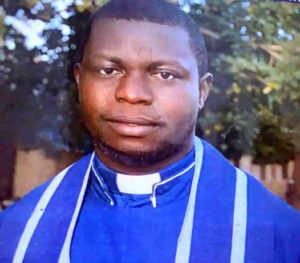
RICHMOND, Va. (BP)–With the definition of marriage protected, pro-family advocates in Virginia now are pushing the legislature to reform the state’s no-fault divorce laws.
Under current law, a spouse can file for divorce for any reason, even if the other spouse wants to stay together. The proposal by the Family Foundation of Virginia would apply only to couples with children and would require both spouses to agree to the divorce. Exceptions would be made for such instances as adultery and abuse. Republican Delegate Robert G. Marshall is the bill’s sponsor.
Last year, a constitutional amendment prohibiting “gay marriage” passed on a statewide ballot, 57-43 percent.
“Divorce has just been devastating on the families of Virginia,” Victoria Cobb, executive director of the Family Foundation, told Baptist Press. “The numbers are astronomical and the ramifications are overwhelming. Every socioeconomic factor you can imagine gets back to the stability of the family. This bill simply seeks to begin to encourage those marriages to have a chance to stay together.”
The bill, she said, is aimed at situations where “one person is unhappy and the other person thinks the marriage is salvageable.”
The nation’s first no-fault divorce law was signed in 1969 by then-California Gov. Ronald Reagan — an action he later said he regretted. California’s law spread nationwide, and by the end of the 1970s, nearly every state had adopted a similar law allowing easy divorce. The results have been devastating: According to Focus on the Family, no-fault divorce laws have increased the number of divorces in America since the 1970s by 279 percent. Additionally, the number of children living with a divorced parent has skyrocketed 352 percent during that same timeframe. Today, every state has some form of no-fault divorce law.
“We did this to put the discussion on the table,” Cobb said of the bill, known as HB 2798. “We’ve also talked about options like they’d have a longer waiting period or they’d have to get counseling before the divorce.”
States with longer waiting periods tend to have lower divorce rates, according to data cited in Focus on the Family’s Citizen magazine.
“There are a lot of things that are on the table,” Cobb said. “Our goal with this legislation was to start the legislature dialoguing on a serious problem that they have failed to address in probably 20 years.”
Pro-family advocates in Michigan and Wisconsin also are pushing divorce-reform laws in their respective states, Focus on the Family’s CitizenLink reported.
“I don’t care how you slice it, [children] are the ones who are really innocent victims in this divorce issue,” Julaine Appling, executive director of the Family Research Institute of Wisconsin, told the Wisconsin Radio Network.
Research has shown, on average, children living with their own biological parents fare better in life than do children of divorced parents. According to research cited by Glenn T. Stanton and Bill Maier in the book “Marriage on Trial,” children reared by only one biological parent are about twice as likely to drop out of school as are children raised by two parents. Children from divorced homes also are 70 percent more likely “to be expelled or suspended from school.”
Additionally, on average, children in a married two-parent family have higher test scores and grade-point averages, are “more likely to finish college,” are less likely to live in poverty and are less likely to be sexually active at a young age, Stanton and Maier say. Research also has shown that children in fatherless homes are more likely to be involved in crime.
The idea for the Virginia legislation began during the drive last year to pass a constitutional marriage amendment. When Cobb spoke in churches, she regularly was asked to help change the state’s divorce laws. Additionally, in public debates, opponents of the marriage amendment would challenge Cobb and others by asking, “Why are you addressing homosexual marriage when heterosexuals have made such a mess of marriage?”
“And we couldn’t disagree,” Cobb said of the current state of marriage. “So now that we have passed the marriage amendment, we are excited to be able to work on something that affects so many Virginians.”
Up until now, though, the opponents of the marriage amendment haven’t been very helpful with divorce reform.
“We have invited them to be at the table and invited them to be part of the discussion,” Cobb said. “It’s been remarkably silent so far.”
–30–















